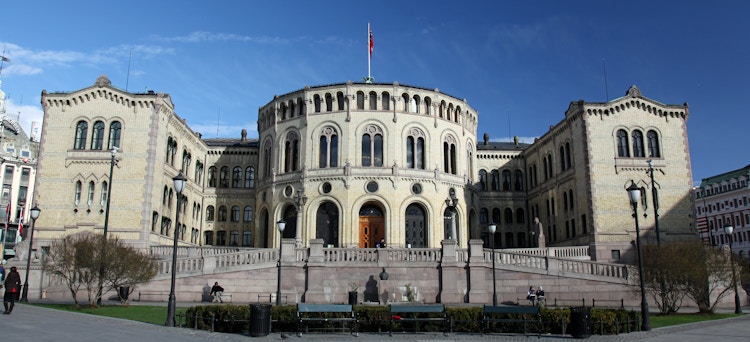Norwegian state commits to zero deforestation
As far as the Rainforest Foundation is aware, Norway is the first country in the world to commit to zero deforestation in its public procurement.

As far as Rainforest Foundation Norway is aware, Norway is the first country in the world to commit to zero deforestation in its public procurement. Photo: Chris Brown
May 26, 2016
A significant number of private companies world-wide have adopted zero deforestation policies. In a groundbreaking move, the Norwegian parliament has now made a similar commitment, pledging to ensure deforestation-free supply chains through the government’s public procurement policy.
Rainforest Foundation Norway has worked for a number of years to make this happen.
The pledge was made in the Recommendation of the Norwegian parliament’s Standing Committee on Energy and the Environment regarding Norway's national biodiversity action plan, which has now been put forward.
In its recommendation the Committee requests, among other things, that the government “impose requirements to ensure that public procurements do not contribute to deforestation of the rainforest”.
Further details on the actual requirements will have to be elaborated by the government as a follow-up of the decision by the parliament.
Norway first in the world
As far as Rainforest Foundation Norway is aware, Norway is the first country in the world to commit to zero deforestation in its public procurement.
At the UN Climate Summit in New York in September 2014, the Norwegian government issued a joint declaration with Germany and the UK. It stated, among other things, that it would “promote national commitments that encourage deforestation-free supply chains, including through public procurement policies to sustainably source commidities such as palm oil, soy, beef and timber”.
Important victory
“This is an important victory in the fight to protect the rainforest. Over the last few years, a number of companies have committed to cease the procurement of goods that can be linked to destruction of the rainforest”, says Nils Hermann Ranum of Rainforest Foundation Norway.
“Until now, this has not been matched by similar commitments from governments. Thus, it is highly positive that the Norwegian state is now following suit and making the same demands when it comes to public procurements”, he adds.
Other countries should follow
A large number of goods are linked to destruction of the rainforest, such as palm oil, tropical timber, soy, and paper. Rainforest Foundation Norway has, together with other NGOs, worked for many years to curb the consumption of goods linked to tropical deforestation.
“Other countries should follow Norway’s leadership, and adopt similar zero deforestation commitments. In particular, Germany and the UK must act, following their joint statement at the UN Climate Summit”, says Ranum.
Several major steps
The Recommendation of the parliament regarding Norway's national biodiversity action plan also includes other major steps forward. The parliament requests that the government exercise due care for the protection of biodiversity in its investments through Norway’s Government Pension Fund Global (GPFG).
The GPFG, the largest sovereign wealth fund in the world, currently has a policy on climate change which targets tropical deforestation as a priority issue, but does not have a distinct policy in place to protect biodiversity.
Important extension
The parliament’s Standing Committee on Energy and the Environment requests that the government address the need to protect biodiversity in its dialogue with Norges Bank Investment Management, which manages the wealth fund, and that a separate policy for biodiversity be developed.
“The Government Pension Fund Global makes stringent demands on the companies in which it invests that they should not contribute to deforestation, and an extension of this policy to include protection of all biodiversity is to be welcomed“, says Ranum.

